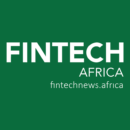Despite M-Pesa appearing to emulate the operations of a bank, its true advantage lies in its distinct identity as a non-bank organization.
This characteristic gives it an edge over competitors by enabling accelerated growth and by allowing it to respond swiftly to changing market dynamics, a new analysis by Tech Safari, a popular newsletter focusing on Africa’s tech and startup ecosystem, says.
The blog post, written by bloggers Caleb Maru and Mercy Awiti and published on February 21, 2024, explores the evolving landscape of mobile financial services in Africa and highlights M-Pesa’s remarkable growth in the sector.
M-Pesa is a mobile phone-based banking service launched by Vodafone and Safaricom, the largest mobile network operator in Kenya. It allows users to deposit money into an account stored on their cell phones, to send balances using PIN-secured SMS text messages to other users, including sellers of goods and services, and to redeem deposits for regular money. Users are charged a fee for sending and withdrawing money using the service.
M-Pesa is a branchless banking service and customers can deposit and withdraw money from a network of more than 500,000 agents that includes airtime resellers and retail outlets acting as banking agents.
M-Pesa was introduced back in 2007 as an alternative way for the population to access financial services and was initially developed to facilitate payments on micro loans. It has since evolved into a platform encompassing a wide range of services including credit and savings.
Across Africa, M-Pesa has become widely successful and the service is now available in seven countries in the region, including Tanzania, Mozambique and Egypt. According to the 2023 Economic Survey by the Kenya National Bureau of Statistics, M-Pesa processes at least 2,600 transactions every second and claims 50 million monthly active customers for the service.
To tap into the growing popularity of smartphones across the region and cater to the new digital lifestyle of users in Kenya and beyond, M-Pesa launched in 2021 its super-app. The strategy, which originates in Asia, aims to create a digital ecosystem that gives users access to multiple services and perform various tasks without needing to switch between different applications. This single platform often provides services and functionalities that encompass various aspects of daily life such as messaging, social networking, shopping, finance and transportation.
The M-Pesa Super App provides all the core functions of the original M-Pesa service but with a new and more intuitive user experience. It also offers a number of new features including the Offline Mode as well as Mini Apps, which are small third-party applications integrated within the M-Pesa platform that provide additional services and functionalities to end-users. Through the M-Pesa Super App
Since its launch, the M-Pesa Super App has garnered more than 3 million users, according to CIO Africa, building on the existing customer base of the original M-Pesa service.

image via safaricom
The benefits of becoming a bank
According to the Tech Safari authors, M-Pesa’s remarkable agent network, expanding portfolio of financial products and massive user base give it all the ingredients to become a successful bank. Taking that route would allow M-Pesa to gain more control over financial products, retain more revenue from financial products, and expand its service offerings.
Becoming a bank would give M-Pesa greater autonomy in designing and launching financial products and services without relying on partner banks, the authors say.
It would also allow it to offer higher transaction limits, potentially attracting more customers and encouraging users to conduct larger transactions. This could lead to higher transaction volumes and revenue for M-Pesa. Currently, M-Pesa users can only send or stash up to US$1,580 daily in their wallets. Becoming a bank would allow M-Pesa to increase that limit to about US$6,300, they say.
Finally, becoming a bank would eliminate the need for M-Pesa to rely on banking partners. This would allow it to retain a larger share of the revenue generated from its financial products. Currently, M-Pesa partners with banks to offer financial products such as loans, savings and investments.
For example, Fuliza is an overdraft service M-Pesa offers in partnership with NCBA Bank and KCB. Fuliza allows users to overdraw on their M-Pesa account when they have insufficient funds to complete a transaction. Users pay a one-time fee to access the service, and daily fees on any unpaid loans. Safaricom and NCBA each pocket 40%, while KCB gets 20%.
The downsides of becoming a bank
Despite these benefits, the authors highlight that there are a number of drawbacks in becoming a fully-fledged bank.
For one, becoming a bank entails navigating through a complex regulatory landscape, including acquiring licenses and complying with stringent regulations set by financial authorities. This process involves substantial paperwork and licensing fees, which could be cumbersome and time-consuming for M-Pesa.
Second, operating a bank involves managing a wide range of financial services and products, which may require significant investment in infrastructure, technology and human resources. This means that M-Pesa would likely need to restructure its operations and systems to meet the regulatory requirements and operational standards of a banking institution.
Overall, the authors stress that not being a bank is actually working in favor of M-Pesa. The strategy allows the company to remain agile and responsive to market dynamics, enabling it to expand its user base and service offerings rapidly. Instead of dealing with the rules and paperwork of traditional banking, M-Pesa can focus on using technology to improve its services and capitalize on emerging opportunities.
“While banks are starting physical and going digital, digital is M-Pesa’s entire playbook – and that’s been its advantage,” the authors write.
“So while M-Pesa gives off more major bank energy and steps deeper into bank territory, it turns out that not being a bank is its best advantage to move faster and grow revenue quickly.”
Featured image credit: Edited from freepik




No Comments so far
Jump into a conversationNo Comments Yet!
You can be the one to start a conversation.